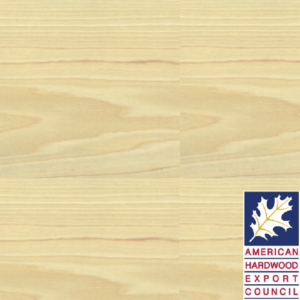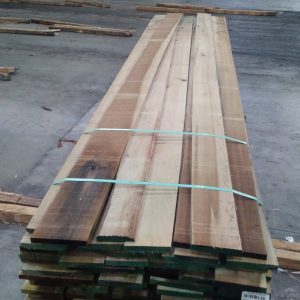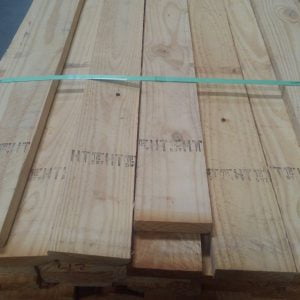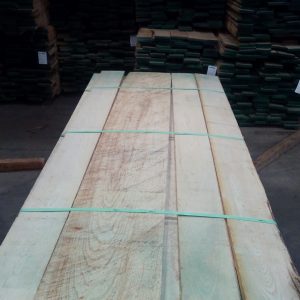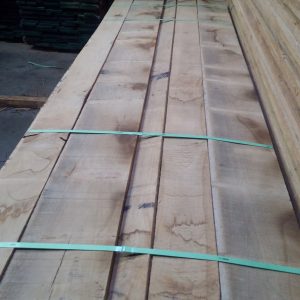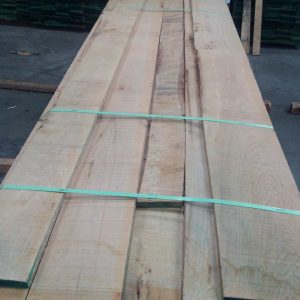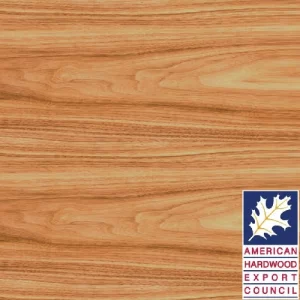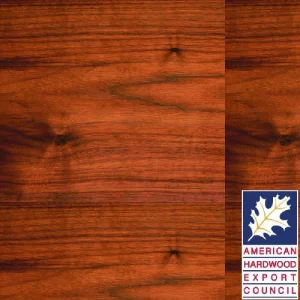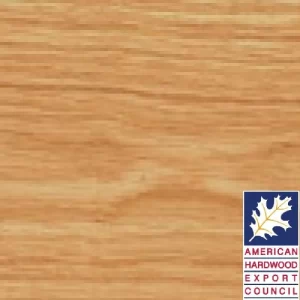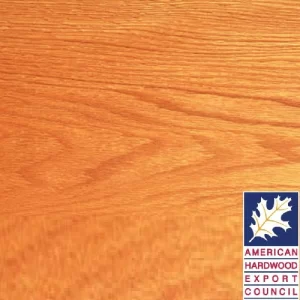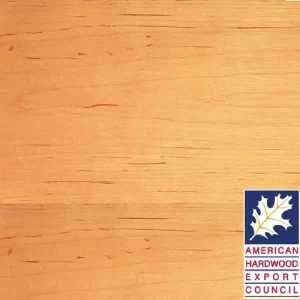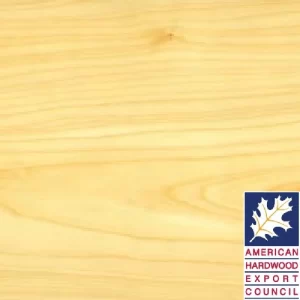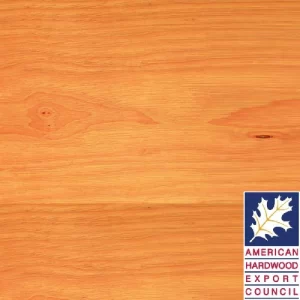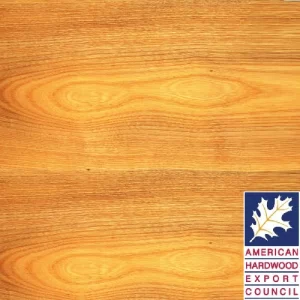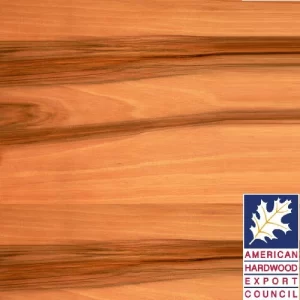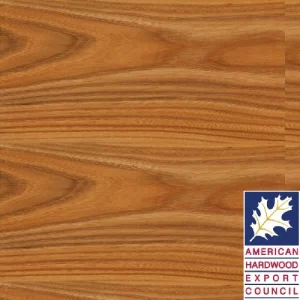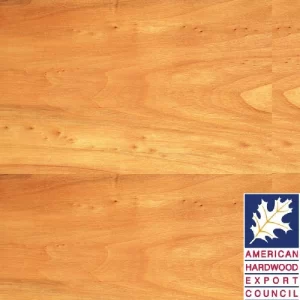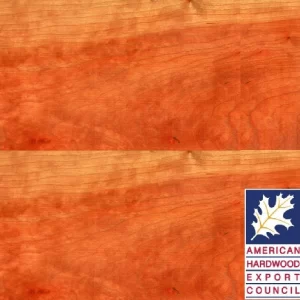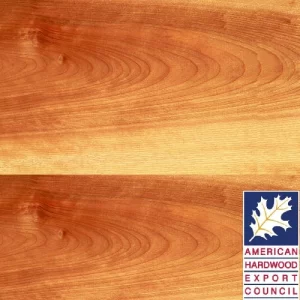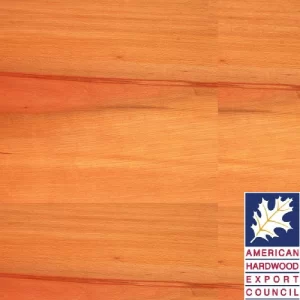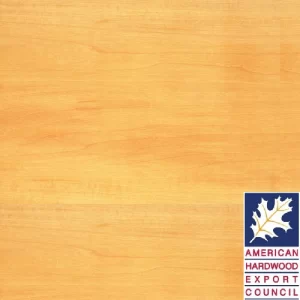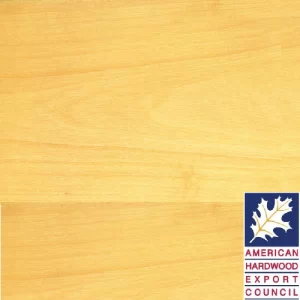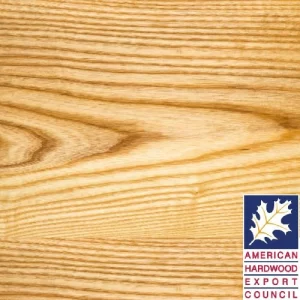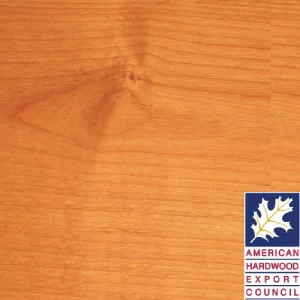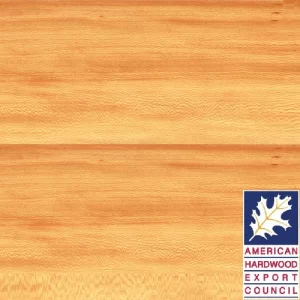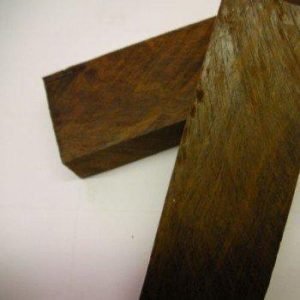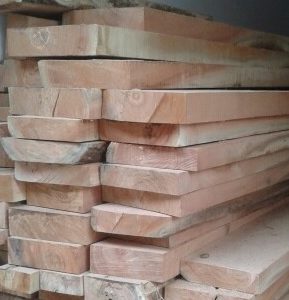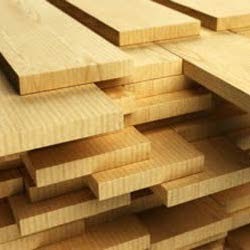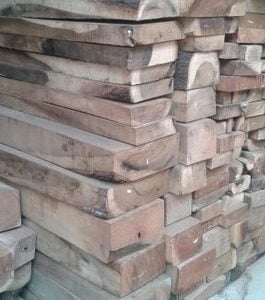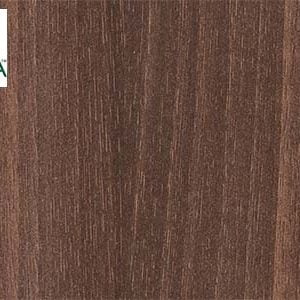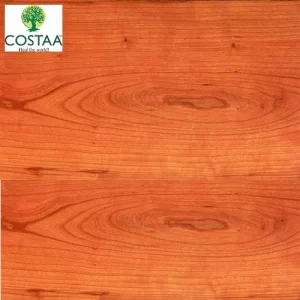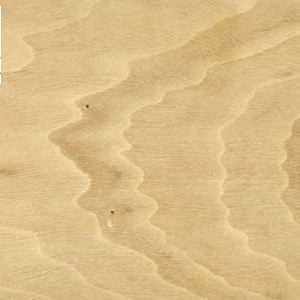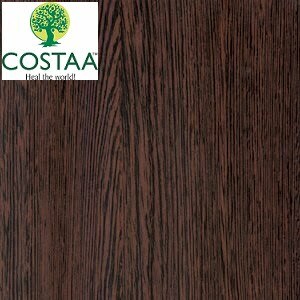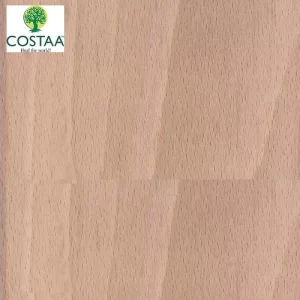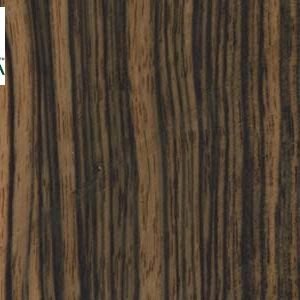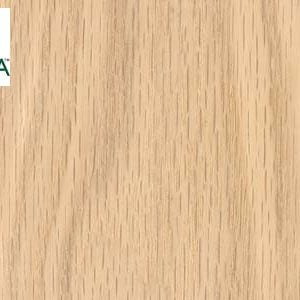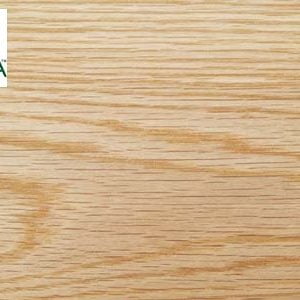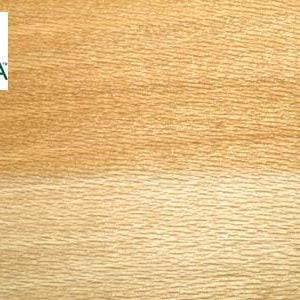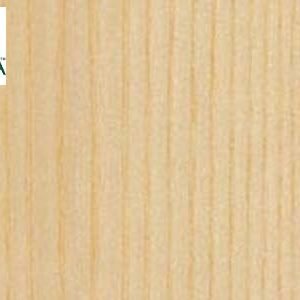-
AHEC Europe American Tulipwood
AHEC Europe American Tulipwood
The sapwood is creamy white and may be streaked, with the heartwood varying from pale yellowish brown to olive green. The green colour in the heartwood will tend to darken on exposure to UV light and turn brown. The wood has a medium to fine texture and is straight grained. The size of the sapwood and some physical characteristics will vary according to growing regions. The wood has many desirable characteristics and is suitable for a wide variety of important uses. Tulipwood is not a poplar (Populus) and has many superior properties. However the tree resembles the shape of the European poplar, hence its name in the USA.
-
Beasley American Hardwood Tulipwood
Beasley American Hardwood Tulipwood
-
Beasley American Hardwood Hickory
Beasley American Hardwood Hickory
-
-
Beasley American Hardwood White Oak
Beasley American Hardwood White Oak
-
Beasley American Hardwood Red Oak
Beasley American Hardwood Red Oak
-
AHEC Europe American Willow
AHEC Europe American Willow
The sapwood of willow varies according to growing conditions and is light creamy brown in colour. In contrast, the heartwood is pale reddish brown to greyish brown. The wood has a fine even texture and, although generally straight grained, it can sometimes be interlocked, or display figure.
-
AHEC Europe American Black Walnut
AHEC Europe American Black Walnut
The sapwood of walnut is creamy white, while the heartwood is light brown to dark chocolate brown, occasionally with a purplish cast and darker streaks. Walnut is usually supplied steamed, which darkens the sapwood, but a very unique look can also be achieved by leaving it natural. The wood is generally straight grained, but sometimes with wavy or curly grain that produces an attractive and decorative figure. The dark heartwood will lighten in colour as it ages overtime with exposure to UV light.
-
AHEC Europe American White Oak
AHEC Europe American White Oak
White oak is similar in colour and appearance to European oak. The sapwood of American white oak is light coloured and the heartwood is light to dark brown. White oak is mostly straight grained with a medium to coarse texture, with longer rays than red oak. White oak, therefore, has more figure.
-
AHEC Europe American Red Oak
AHEC Europe American Red Oak
The sapwood of red oak is white to light brown and the heartwood is often a pinkish reddish brown. The wood is similar in general appearance to white oak, but with a slightly less pronounced figure due to the smaller rays and a more porous end grain structure. The wood is mostly straight grained with a coarse texture.
-
AHEC Europe American Soft Maple
AHEC Europe American Soft Maple
In most respects the wood of soft maple is very similar to that of hard maple, although due to its widespread growth it may be more susceptible to regional colour variations. Generally the sapwood is greyish white, sometimes with darker coloured pith flecks, and the heartwood varies from light to dark reddish brown. The wood is usually straight grained. The lumber is generally sold unselected for colour.
-
AHEC Europe American Hard Maple
AHEC Europe American Hard Maple
The sapwood is creamy white with a slight reddish brown tinge and the heartwood varies from light to dark reddish brown. The amount of darker brown heartwood can vary significantly according to growing region. Both sapwood and heartwood can contain pith fleck. The wood has a close fine texture and is generally straight grained, but it can also occur as ?curly?, ?fiddleback?, and ?birdseye? figure.
-
AHEC Europe American Hickory and Pecan
AHEC Europe American Hickory and Pecan
The hickories are an important group within the eastern hardwood forests. Botanically, they are split into two groups; the true hickories, and the pecan hickories (fruit bearing). The wood is virtually the same for both and is usually sold together. The sapwood of hickory and pecan is white, tinged with brown while the heartwood is pale to reddish brown. Both are coarse textured and the grain is usually straight but can be wavy or irregular.
-
AHEC Europe American Hackberry
AHEC Europe American Hackberry
Hackberry is closely related to sugarberry (Celtis laevigata) and is a member of the elm family. There is little difference between sapwood and heartwood, which is yellowish grey to light brown with yellow streaks. The wood has irregular grain, occasionally straight and sometimes interlocked, with a fine uniform texture.
-
AHEC Europe American Gum
AHEC Europe American Gum
The sapwood of American gum tends to be wide and is white to light pink, while the heartwood is reddish brown, often with darker streaks. The wood has irregular grain, usually interlocked, which produces an attractive grain figure. It has a fine uniform texture.
-
AHEC Europe American Elm
AHEC Europe American Elm
Red elm has a greyish white to light brown narrow sapwood, with heartwood that is reddish brown to dark brown in colour. The grain can be straight, but is often interlocked. The wood has a coarse texture.
-
AHEC Europe American Cottonwood
AHEC Europe American Cottonwood
The sapwood is white and may contain brown streaks while the heartwood may be pale to light brown. It is a diffuse porous timber with a coarse texture. The wood is generally straight grained and contains relatively few defects. As a true poplar cottonwood has similar characteristics and properties to American aspen and European poplar.
-
AHEC Europe American Cherry
AHEC Europe American Cherry
The heartwood of American cherry varies from rich red to reddish brown and will darken on exposure to light. In contrast the sapwood is creamy white. Cherry can be supplied steamed, to darken sapwood or left unsteamed. The wood has a fine uniform straight grain, smooth texture, and may naturally contain brown pith flecks and small gum pockets.
-
AHEC Europe American Yellow Birch
AHEC Europe American Yellow Birch
Yellow birch has a white sapwood and light reddish brown heartwood. The wood is generally straight grained with a fine uniform texture.
-
AHEC Europe American Beech
AHEC Europe American Beech
The sapwood of American beech is white with a red tinge, while the heartwood is light to dark reddish brown. American beech tends to be slightly darker and less consistent than European beech. The wood is generally straight grained.
-
AHEC Europe American Basswood
AHEC Europe American Basswood
The sapwood of basswood is usually quite large and creamy white in colour, merging into the heartwood, which is pale to reddish brown, sometimes with darker streaks. The wood has a fine uniform texture and indistinct grain that is straight.
-
AHEC Europe American Aspen
AHEC Europe American Aspen
Sapwood is white, blending into the light brown heartwood. The contrast between sap and heartwood is small. The wood has a fine uniform texture and is straight grained.
-
AHEC Europe American Ash
AHEC Europe American Ash
American ash is similar in appearance to European ash. The sapwood is light coloured to nearly white and the heartwood varies from greyish brown to light brown, to pale yellow streaked with brown. The wood is generally straight grained with a coarse uniform texture. The degree and availability of light coloured sapwood, and other properties, will vary according to the growing regions. For example, Southern ash lumber will be faster grown and contain more sapwood and therefore, a higher percentage of white colour, but compared to Northern ash, it has a more open texture and grain.
-
AHEC Europe American Alder
AHEC Europe American Alder
Red alder is almost white when freshly cut but quickly changes on exposure to air to light brown with a yellow or reddish tinge. Heartwood is formed only in trees of advanced age and there is no visible boundary between sap and heartwood. The wood is fairly straight grained with a uniform texture.
-
AHEC Europe American Sycamore
AHEC Europe American Sycamore
The sapwood of sycamore is white to light yellow, while the heartwood is light to dark brown. The wood has a fine close texture with interlocked grain. It is not related in any way to European sycamore (Acer pseudoplatanus), but it has the same family classification, and similar characteristics to European plane (Platanus orientalis). Contrasts well with other species.
-
Cauvery African Hardwood
We are comprehensively providing a huge array of African Hardwood. These are very robust and are high on demand for use in furniture industry for making various kinds of furniture. Further, these African Hardwoods are also used in construction industry for making windows and doors.
-
Bombay Neem Wood
Backed with contemporary in-house facilities and immense experience, we are occupied in offering a wide assortment of Neem Wood. The offered segment is precisely cut using modern machines in tandem with the industrial norms. These products are accessible in different sizes, widths and lengths as per the detailed information from our clients. Moreover, our offered products are tested against various parameters under the surveillance of our quality controllers to provide a flawless segment at the user’s end.
-
Bombay Pine Wood Planks
Known as a renowned firm, we are involved in trading and supplying an exquisite range of Pine Wood Planks to fulfill the needs of our customers. Due to this, these are resistant to the termites. Further, these are available in variety of shapes and sizes to fulfill the demands of our ever-growing customer base. Apart from this, we make sure that these undergo quality testing phase so that our customers get the best product at affordable price.
-
Bombay Babool Wood
We are amongst the most dependable enterprise actively occupied in offering a comprehensive array of Babool Wood that is from Maharashtra. Our offered babool wood is extensively used for making various kinds of furniture items like windows, doors, wardrobes, tables, etc. Being a quality-oriented organization, we test the entire assortment upon numerous quality parameters in line with the industry defined guidelines & norms. Apart from this, these products are accessible in various sizes, widths, lengths and packaging options as per the need of our customers.
-
COSTAA American Walnut Hardwood
The sapwood of walnut is creamy white, while the heartwood is light brown to dark chocolate brown, occasionally with a purplish cast and darker streaks. Walnut can be supplied steamed, to darken sapwood or left unsteamed. The wood is generally straight grained, but sometimes with wavy or curly grain that produces an attractive and decorative figure.
-
COSTAA American Cherry Hardwood
Cherry is known as being one of the best all-around woods for workability. It is stable, straight-grained, and machines well. The only difficulties typically arise if the wood is being stained, as it can sometimes give blotchy results?using a sanding sealer prior to staining, or using a gel-based stain is recommended. Sapwood is common, and may contribute to a high wastage factor.
-
COSTAA American Hornbeam Hardwood
Hornbeam?s sapwood is very thick, with most boards and lumber being comprised entirely of sapwood. Color is nearly white. Pale yellowish brown heartwood isn?t clearly demarcated from sapwood.
-
COSTAA African Wenge Hardwood
Heartwood is a very dark brown with black streaks. Upon application of a wood finish (particularly an oil-finish) the wood can become nearly black. Grain is straight, with a very coarse texture. Low natural luster. Diffuse-porous; large pores in no specific arrangement; solitary and radial multiples of 2-3; brown mineral deposits occasionally present; growth rings distinct; rays not visible without lens; parenchyma vasicentric to confluent, with wide bands of parenchyma typically as thick as the pores. Very durable, and resistant to termite attack.
-
COSTAA German Beech Hardwood
The color is light cream with darker heartwood, something between maple and ash. The grain is short, mostly straight, with fine, even texture. Beech wood imparts definite warmth to the environment and has the ability to make the interior look more spacious. Furniture manufacturers and cabinet makers figured out the trick for quite a while; that?s one of the reasons many pieces of furniture designed for small habitats such as apartments are so often veneered with beech wood. Dense, heavy and hard (1300 on the Janka scale) yet somewhat brittle due to its short grain.
-
COSTAA African Ebony Hardwood
Ebony is a dense black wood, most commonly yielded by several species in the genus Diospyros, but may also refer to other heavy, black (or dark colored) woods from unrelated species. Ebony is dense enough to sink in water. It is finely-textured and has a very smooth finish when polished, making it valuable as an ornamental wood. Species of ebony include Diospyros ebenum (Ceylon ebony), native to southern India and Sri Lanka; Diospyros crassiflora (Gabon ebony), native to western Africa; and Diospyros celebica (Makassar ebony), native to Indonesia and prized for its luxuriant, multi-colored wood grain.
-
COSTAA Swedish Red Oak Hardwood
Heartwood is a light to medium brown, commonly with a reddish cast. Nearly white to light brown sapwood is not always sharply demarcated from the heartwood. Quartersawn sections display prominent ray fleck patterns. Conversely, White Oak tends to be slightly more olive-colored, but is by no means a reliable method of determining the type of oak. Grain is straight, with a coarse, uneven texture. The pores are so large and open that it is said that a person can blow into one end of the wood, and air will come out the other end: provided that the grain runs straight enough.
-
COSTAA French White Oak Hardwood
Open, coarse grain with light tan color. White or creamy veins occasionally occur. Simultaneously elegant and rustic, the white oak suggests firmness and resilience. It will blend in quite nicely if other oak elements such as cabinetry or floorings exist but it will also go well along teak, chestnut or yellow pine. It makes especially a great presence within antique or heritage decorations. Hard, dense and heavy, with great wear resistance. Despite being a rather stiff wood, it shows a very good shock absorbance.
-
COSTAA Belgian Sycamore Hardwood
Similar to maple, the wood of Sycamore trees is predominantly comprised of the sapwood, with some darker heartwood streaks also found in most boards. (Though it is not uncommon to also see entire boards of heartwood too.) The sapwood is white to light tan, while the heartwood is a darker reddish brown. Sycamore also has very distinct ray flecks present on quartersawn surfaces?giving it a freckled appearance?and it is sometimes even called ?Lacewood,? though it bears little botanical relation to the tropical species of Lacewood.
-
COSTAA Danish White Ash Hardwood
The heartwood is a light brown color, though darker shades can also be seen, which is sometimes sold as Olive Ash. Has a medium to coarse texture similar to oak. The grain is almost always straight and regular, though sometimes curly or figured boards can be found. Ring-porous; large earlywood pores 2-4 rows wide, small latewood pores solitary and radial multiples of 2-3; tyloses common; growth rings distinct; rays barely visible without lens; parenchyma banded (marginal), paratracheal parenchyma around latewood pores vasicentric, aliform, and confluent.
Categories

